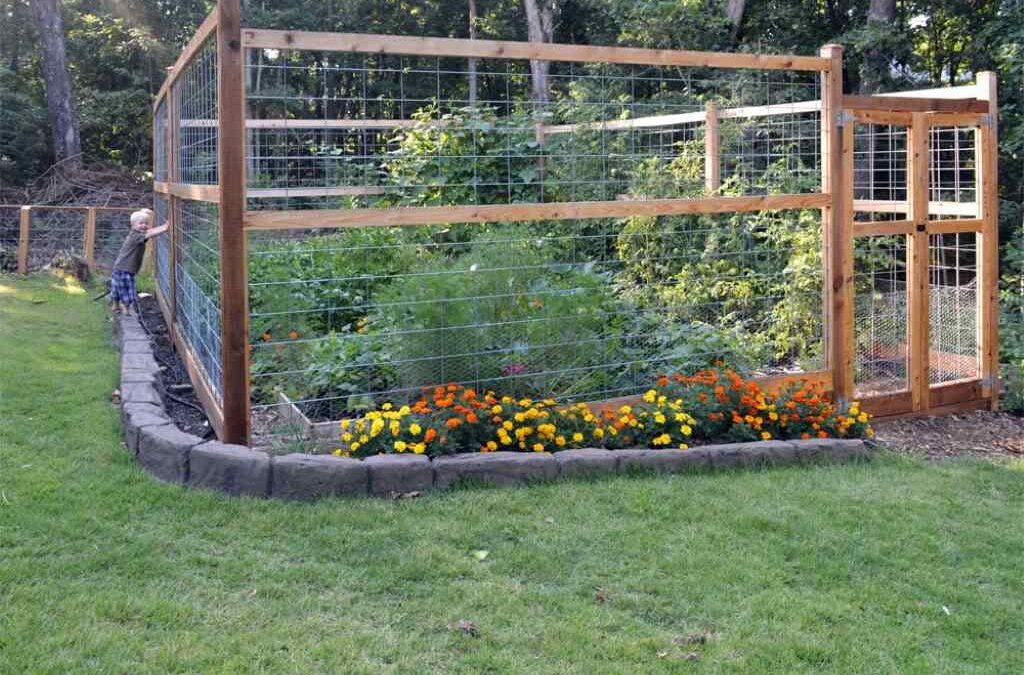Wildlife-Proof Your Garden: A Guide to Protecting Your Plants

Why Does My Bike Chain Keep Clicking? (Simple Fix Included)
August 26, 2024
8 Essential Tools to Enhance Your Meditation Practice
September 1, 2024Gardening is a rewarding endeavor, but the presence of hungry wildlife can quickly turn your green oasis into a buffet. Deer, rabbits, squirrels, raccoons, and even birds can cause significant damage, leaving gardeners frustrated and disheartened. However, with a little knowledge and some proactive measures, you can create a garden that is both beautiful and wildlife-resistant.
Table of Contents
ToggleUnderstanding Wildlife Behavior
The first step to protecting your garden is understanding the behavior of the animals you’re dealing with. Different species have different feeding habits and preferences, and knowing what attracts them to your yard will help you tailor your defense strategies accordingly.
- Deer: These majestic creatures can be voracious eaters, especially during the winter months when food is scarce. They’re drawn to tender shoots, buds, flowers, and fruits.
- Rabbits: These furry critters love to nibble on young plants, vegetables, and even bark. They’re particularly active at dawn and dusk.
- Squirrels: These agile climbers are notorious for digging up bulbs, stealing fruits and vegetables, and gnawing on tree bark.
- Raccoons: These nocturnal bandits are attracted to sweet treats like corn, berries, and melons, but they’ll also dig up lawns in search of grubs and other insects.
- Birds: While many birds are beneficial to gardens, some species, like crows and sparrows, can damage crops and seedlings.
Effective Deterrents
Once you know what you’re up against, you can start implementing deterrents to keep wildlife out.
- Physical Barriers: Fencing is an effective way to keep larger animals like deer and rabbits out of your garden. Choose a fence that is tall enough and sturdy enough to withstand their attempts to jump or push through. For smaller animals like squirrels and raccoons, consider using chicken wire or hardware cloth to create a barrier around vulnerable plants.
- Repellents: There are many commercial and homemade repellents available, each targeting different species. Some repellents use scent or taste to deter animals, while others rely on motion or sound. For example, spreading human hair, soap shavings, or hot pepper flakes around the garden can deter deer and rabbits. Sprinkling blood meal or bone meal can repel raccoons.
- Scare Tactics: Devices that emit sudden noises or movements can startle animals and make them think twice about entering your garden. Motion-activated sprinklers, ultrasonic emitters, or even wind chimes can be effective.
- Companion Planting: Certain plants, like lavender, mint, rosemary, and marigolds, emit strong scents that deter many animals. Planting these alongside your vegetables or flowers can provide an additional layer of protection. However, if you’re still facing issues with squirrels, you might want to explore options such as squirrel poison. For more information on how to get rid of squirrels permanently, you can visit https://www.lsdaynursery.com/reviews/squirrel-poison-how-do-i-get-rid-of-squirrels-permanently/.
Additional Tips
- Cleanliness: Keep your garden tidy by removing fallen fruits, vegetables, and debris. This will help discourage animals from viewing your yard as a food source.
- Timing: Plant certain vegetables, like tomatoes and peppers, later in the season when they’re less vulnerable to damage.
- Netting: Use netting to protect vulnerable crops like berries and fruits from birds and squirrels.
- Diversity: Planting a variety of plants can make your garden less appealing to certain animals. For example, deer are less likely to eat plants with strong scents or fuzzy leaves.
A Note on Humane Practices
While protecting your garden is important, it’s equally important to do so humanely. Avoid using traps or poisons, as these can harm animals and disrupt the ecosystem.
Be Patient and Persistent
Protecting your garden from wildlife is an ongoing process. It may take some trial and error to find the most effective deterrents for your particular situation. Be patient, persistent, and willing to adapt your strategies as needed, and you’ll soon enjoy a bountiful harvest that you and your local wildlife can appreciate from a distance.




